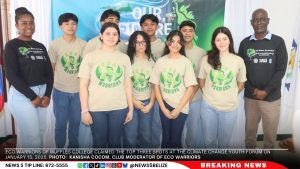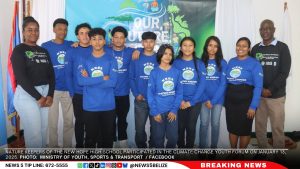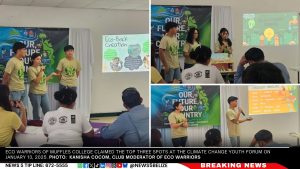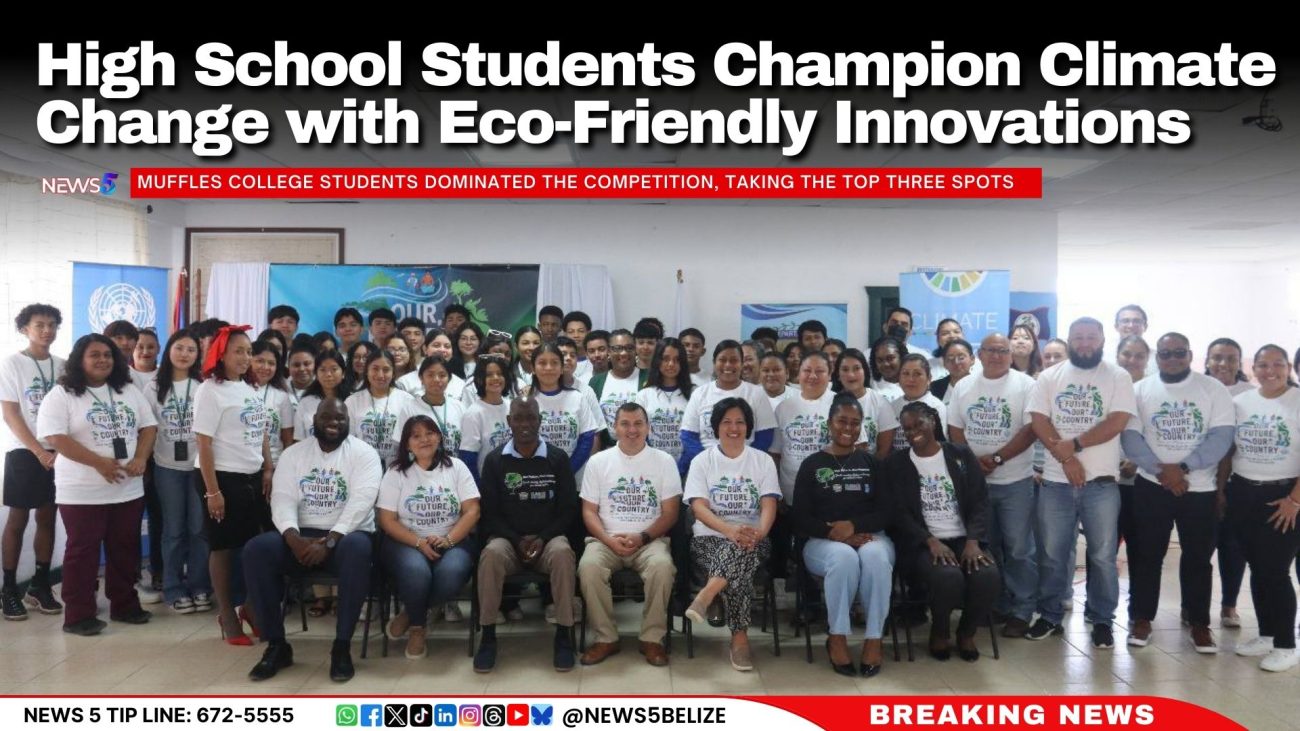High School Students Champion Climate Change with Eco-Friendly Innovations
From turning plastic waste into building materials to using coconut husks for water filtration, Muffles College students claimed the top three prizes at the Climate Change Youth Forum on Monday. The forum was hosted by the Department of Youth Services (DYS) in collaboration with the United Nations Development Programme (UNDP) and the Ministry of Sustainable Development.
It was held at the Centro Escolar Mexico Junior College in the Corozal District and focused on sustainability challenges and innovations brought together by passionate youth and environmental experts. Muffles College students dominated the competition, taking the top three spots in the project proposal contest.
The Child Advisory Body (CAB) and Nature Keepers of the New Hope High School were also part of the forum.

Eco Bricks: A Creative Solution to Plastic Waste
The third-place project, Eco Bricks, was presented by Brianna Castillo, Marcel Riverol, and Marvin Flores. The initiative proposes a sustainable way to tackle plastic waste by repurposing non-biodegradable materials like plastic bags and packaging. The project manager, Marcel Riverol, told News 5 that these materials are compacted into plastic bottles, creating durable “eco bricks” that can be used in construction projects.
“We plan to recycle plastic bottles, soda bottles, and other nonbiodegradable waste to reduce the pollution in our community,” said Riverol. “We can use these types of eco bricks in construction projects around our community, and that way we can lend a helping hand to the movement of eliminating pollution in our community and finding sustainable ways to manage waste in Orange Walk.”
Brianna Castillo, a researcher for the team, added that community engagement is key to the project’s success. “People say, ‘Oh, we should ban single-use plastics.’ But we’re not actually taking account for it,” she said. “The little steps matter, and that’s how we’re going to do that.”

Husk Flow—Turning Coconut Husk Into Water Filtration Systems
The second-place project, Husk Flow, was developed by Leilani Tun, Jarel Cordova, and Ziraili Narvallez. Their project focuses on utilising coconut husks to create eco-friendly water filtration systems, particularly aimed at rural areas lacking access to clean water.
Jarel Cordova, the project manager, told News 5, “What inspired us to create this project is those deep rural areas that don’t have access to potable water, and they depend on rainwater for their needs. With our project, they can make use of the coconut waste that we have in our environment, and so they can have quality fresh water for their needs to meet their necessities.”
The team’s researcher, Ziraili Narvallez, noted that while Belize is known for its tropical climate and abundant coconut trees, they focused on finding creative ways to use the often-wasted coconut husk after the flesh is harvested. “What happens afterwards is just left unattended, or it’s burnt? So instead of doing so, we want to recycle that waste and turn it into a treasure and also a functional treasure,” she said.
The team hopes to partner with NGOs to expand the project and make a meaningful impact by ensuring that “the type of water that people are consuming is the right one for their health,” Cordova added.

Solar Synergy Schools: A Sustainable Classroom Initiative
The first-place winners, Gianna Flowers, Adir Castillo, and Alexandra Blanco, presented Solar Synergy Schools. The project aimed at reducing carbon emissions in classrooms by replacing conventional lighting with LED solar-powered systems.
The project’s is to “reduce carbon emissions,” said Gianna Flowers, a researcher for the team. “By replacing conventional electricity with LED solar-powered systems in local schools and classrooms.”
“As compared to incandescent light bulbs, they emit 90 percent more carbon dioxide into our atmosphere,” Flowers added.
The team recognised Belize’s reliance on Mexico’s Comisión Federal de Electricidad (CFE) for energy. Their proposal aims to install solar panels in schools, enhancing self-sufficiency and reducing dependence on external electricity sources.
Alexandra Blanco, the project manager, pointed out that the project may sound ambitious but remain hopeful that this initiative can lead to a change within schools “one classroom at a time.”
“We believe that it’s important to keep pitching these things to NGOs and be heard by the government so that they realise that even though, yes, this is only coming from high school students, it is still a very important thing to do.”

Kanisha Cocom, the club moderator of Eco Warriors at Muffles College, said that after only launching in August of 2023, the club boasts of students that are passionate about doing their “best to protect earth” as part of Muffles College’s core values.







Facebook Comments